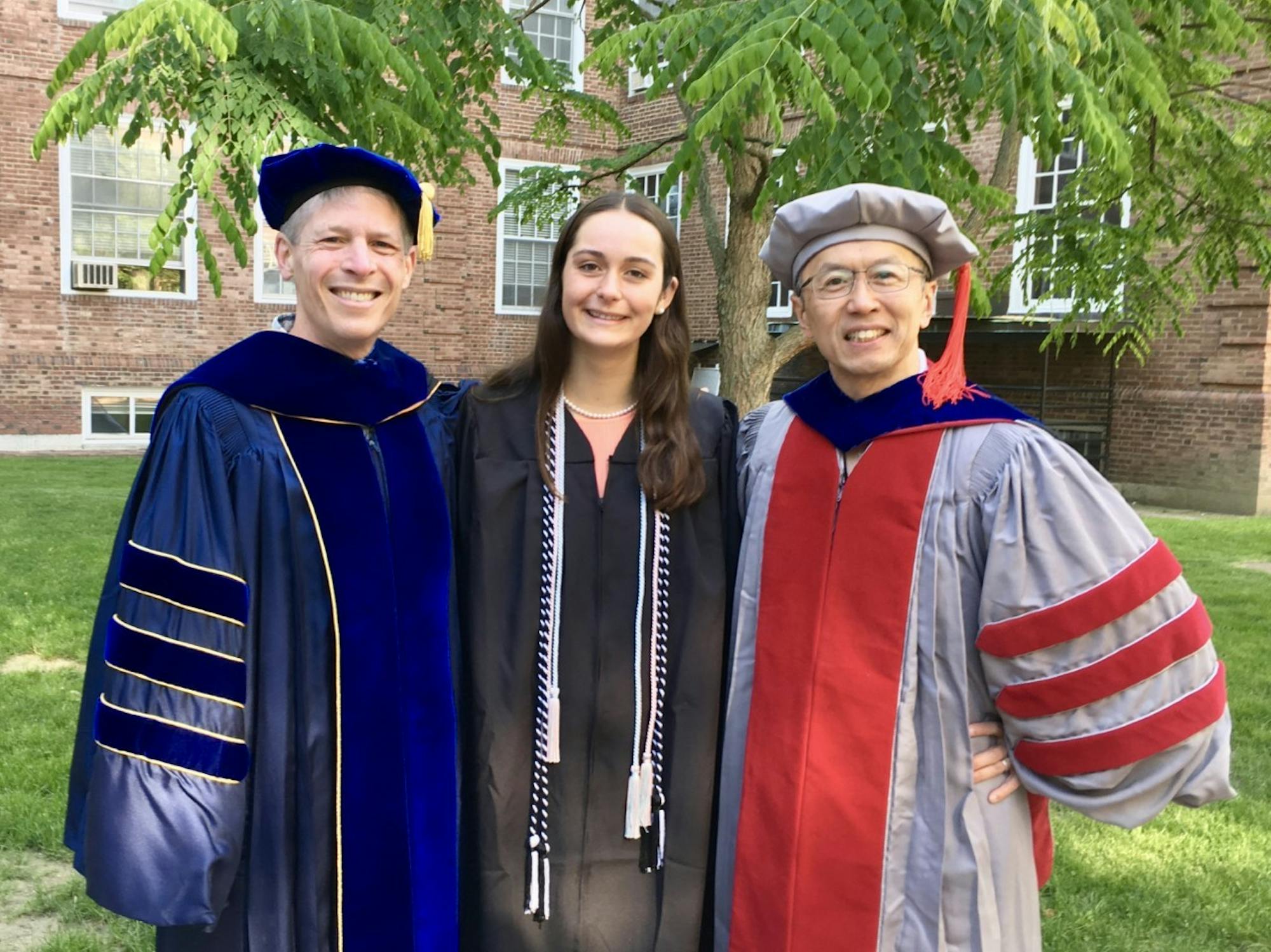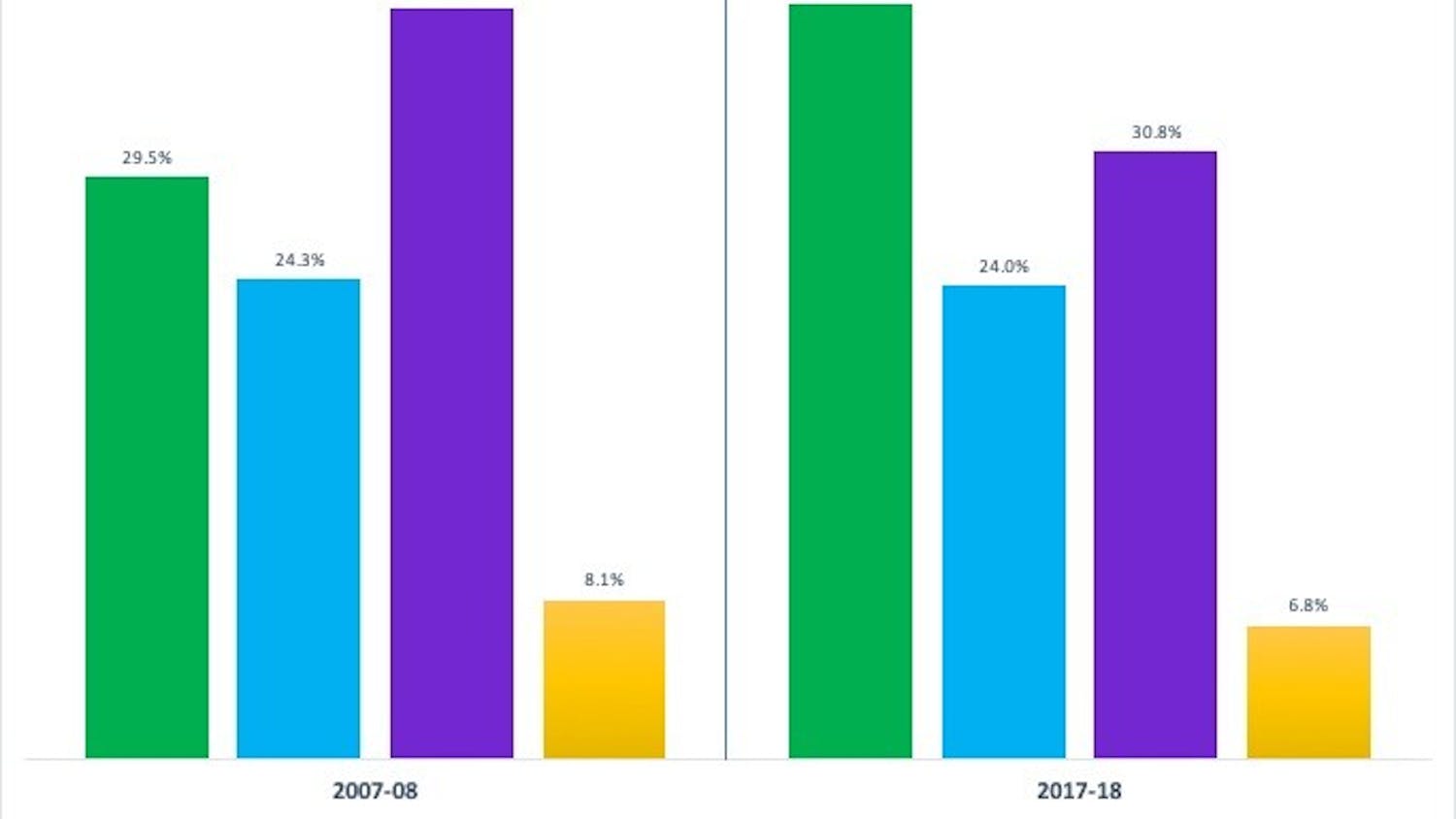In the midst of polarized opinions about diversity on college campuses, government professor and associate dean of faculty for the social sciences John Carey, government professor Yusaku Horiuchi and Stanford University Ph.D. student Katherine Clayton ’18 have published a book titled “Campus Diversity: The Hidden Consensus.”
Referencing a controversial 2018 op-ed in The Dartmouth and the subsequent campus debate, the authors found that despite some vocal pushback for policies such as affirmative action, there is still widespread support for pro-diversity policies. Published in December 2019 by Cambridge University Press, the book used statistical methods to determine that students generally support pro-diversity policies for both undergraduate admissions and faculty hiring.
“We just had no idea what we were going to find when we started it,” Carey said. “It turns out what we found in the book is totally consistent with affirmative action policies as they’re currently practiced. We found really broad support for the consideration of race and ethnicity, gender, and socioeconomic background in admissions and faculty recruitment.”
The idea for the project began in 2015, when a series of student protests related to race and diversity swept various colleges across the nation, including Dartmouth. According to Carey, he and Horiuchi were interested in finding out what students thought about affirmative action beyond the news headlines and protests.
“If you just survey somebody and just ask them, ‘Do you support affirmative action in college admissions or not?’ people have an answer to that, but it’s become super polarized and maps onto our partisan identities,” Carey said.
As a result, the survey was specifically designed to avoid using the terms “affirmative action” and “diversity.” The professors also turned to a statistical method known as conjoint analysis. Horiuchi said that this method has long been used in marketing analysis, but has only recently been applied to political and social sciences. Conjoint analysis is fundamentally multidimensional and allows for various characteristics to be examined.
According to Horiuchi, a key benefit of this method lies in its ability to mitigate social desirability bias or the tendency to respond to surveys in a way that’s perceived favorably by others.
“We want people who engage in the campus diversity debate to understand the importance of applying scientific methods to elicit honest opinions about these issues,” Horiuchi said.
The survey was first sent to Dartmouth students with the intent to publish the findings as a paper. The paper’s rejection led the professors to contact faculty at other colleges to better generalize the survey results. Clayton, a sophomore at the time, began working with Horiuchi as a research assistant before committing to the project and becoming a co-author. The book features survey results from seven other colleges in the United States as well as the London School of Economics.
“What we found is essentially consensus; students prefer increasing demographic diversity of students and also faculty members,” Horiuchi said. “We found virtually no case in which some students prefer particular types of undergraduate applicants or faculty candidates, and other students strongly disprefer. Essentially, we didn’t find any polarizations.”
In the book’s opening chapter, the authors reference a guest column published in The Dartmouth in 2018 titled “You’re Not Tripping.” The writer, Ryan Spector ’19 alleged that the Dartmouth Outing Club’s First-Year Trips Directorate was selected with an “obsession with diversity,” as 80 percent of the incoming directorate were women. Following the publication of the column, various campus organizations voiced support for the Trips directors, who are tasked with selecting the directorate, while also denouncing the guest columnist. Carey and Horiuchi responded with a guest column of their own in The Dartmouth, explaining that such criticism has “escalated the rhetoric further” and is “counterproductive.” According to Carey, he and Horiuchi received private emails from students thanking them for their piece.
“We thought that was really telling because it was consistent with our intuition; when you’re looking at one of these really controversial things, the public voices may not be all that reflective of the critical mass of student opinion,” Carey said. “The [project] was already well on our way when we decided to write the book but it reconfirmed our suspicion that we were onto something.”
According to 2020 Trips director Kellen Appleton ’20, the directorate is selected with an emphasis on welcoming incoming students to Dartmouth, as First-Year Trips serves as a pre-orientation program.
“We do think it’s important to have a variety of voices in the room when we make decisions about trips,” Appleton said. “It’s important to address concerns that could come up beforehand, like things that just wouldn’t occur to me to avoid that, in my case, DOC white echo chamber.”
The authors of the book also hope that their findings can add perspective to the recent debate between the nonprofit group Students for Fair Admissions and various universities. SFFA claims that Harvard University specifically discriminated against Asian-American applicants, challenging affirmative action policies but ultimately losing in court.
“I hope it will be pretty helpful for informing a lot of these court cases on affirmative action that we have coming up right now,” Clayton said. “Our results say that across the board, we do see student support for considering diversity even though it’s hard to gauge that support when you just ask something like do you support affirmative action. That’s a loaded term — you might not actually get the results of students preferences.”



